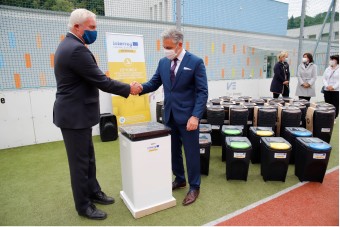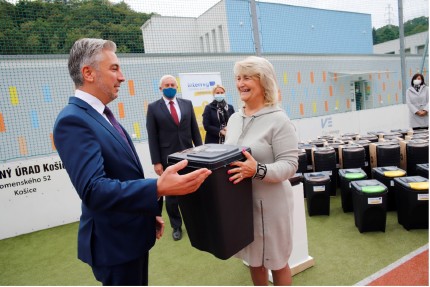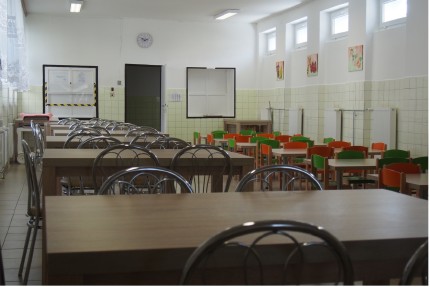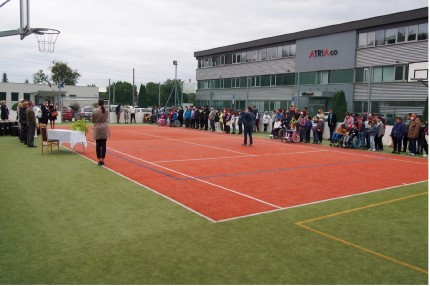Cooperation with the Joint school Opatovská cesta in Košice

Recently, we reported about some interesting activities in one of Citycircle's partner cities, Košice in Slovakia.
The second of the schools involved in the pilot activity is the Joint School on Opatovská Cesta in Košice. As part of the preparation and organization of the pilot activity, there were meetings organized with representatives of the school, where the cooperation was discussed. Part of the pilot activity at this school is the education of students regarding the circular economy. On September 20, 2021, in cooperation with the Friends of the Earth organization, an "enviro day" was organized at this school. "Enviro day" included practical demonstrations, lectures and quiz for students.

As part of the "enviro day", an official event was organized at this school, during which bins for separate waste collection and an electric composter were handed over to schools. The event was attended by representatives of the Košice self-governing region, the Faculty of Economics of the Technical University in Košice, the Joint School Opatovská Cesta in Košice, the Secondary Industrial Technical School in Spišská Nová Ves and the Štefan Moyses Grammar School in Moldava nad Bodvou. All representatives of these institutes officially signed a manifest to support the circular economy during the event. The event also included the ceremonial opening of a garden built on the premises of the Joint School on Opatovská Cesta in Košice. The garden was officially opened by the head of the Košice self-governing region, the dean of the Faculty of Economics and the director of the Joint School.
The year 1970 is considered to be the establishment of the joint school Opatovská cesta Košice when the basic nine-year school for physically handicapped pupils was established. Gradually, other types of schools were added to this school. Currently, the school educates students with physical disabilities from in 6 types of schools: Nursery school, Special primary school, Primary school, Practical school, Secondary vocational school, Business academy.

Teachers at the 2nd level of primary school use modern methods to prepare pupils for further education at secondary schools. The Secondary Vocational School covers the following study fields: technical-administrative and technical-economic worker. Graduates of the Business Academy after successful completion of studies are prepared for independent performance as a professional economic worker, who can perform economic activities related to obtaining and processing information in production, supply and sales, administration, and accounting.

The practical school offers one of the new alternative options for solving the problem of further education and subsequent integration of students with mental disabilities into society. The role of the practical school is to prepare students for life in the family, to train them in the work so they can perform meaningful work in sheltered workplaces. The school is currently attended by a total of 225 students. The school has high-quality computer and internet equipment, which students use not only in computer science classes, but also in other subjects. The joint school is improving its educational process and modernizing its equipment also through participation in several national and international projects.
